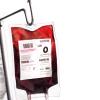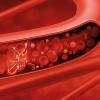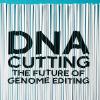To mark International Women’s Day on 8 March, Tahmina Hussain asked four colleagues three questions about gender and the workplace. Here’s what they said.

Why do you like working in science?
TH: I have always enjoyed studying human biology as I am fascinated by how the anatomy and physiology of the human body allows us to better understand health and disease. I’ve also always known that I wanted to work in a hospital to help patients, so this aspect, combined with my appreciation for biomedical science, allowed me to work in pathology whilst enabling me to apply the knowledge and skills I have gained during my studies.
ZA: I enjoying being able to learn new things, and different processes. Science is forever learning, always changing and it helps you learn adaptation skills.
VB: Working in science provided me with an exciting career, as well as knowledge and many skills. Having retired from paid employment, I remain involved in the British Society for Microbial Technology and in current political issues as well as editing a car magazine – all because of my career in science.
I experienced working throughout pathology, choosing microbiology because of its variety and eventually moving into management and directing a department. I gained an MSc, an MA and a PhD researching issues women face that hinder them progressing to the top jobs. My PhD led to publishing a book and related papers. More recently my articles have questioned government approaches to testing for COVID-19.
Please click here to read the full article.




